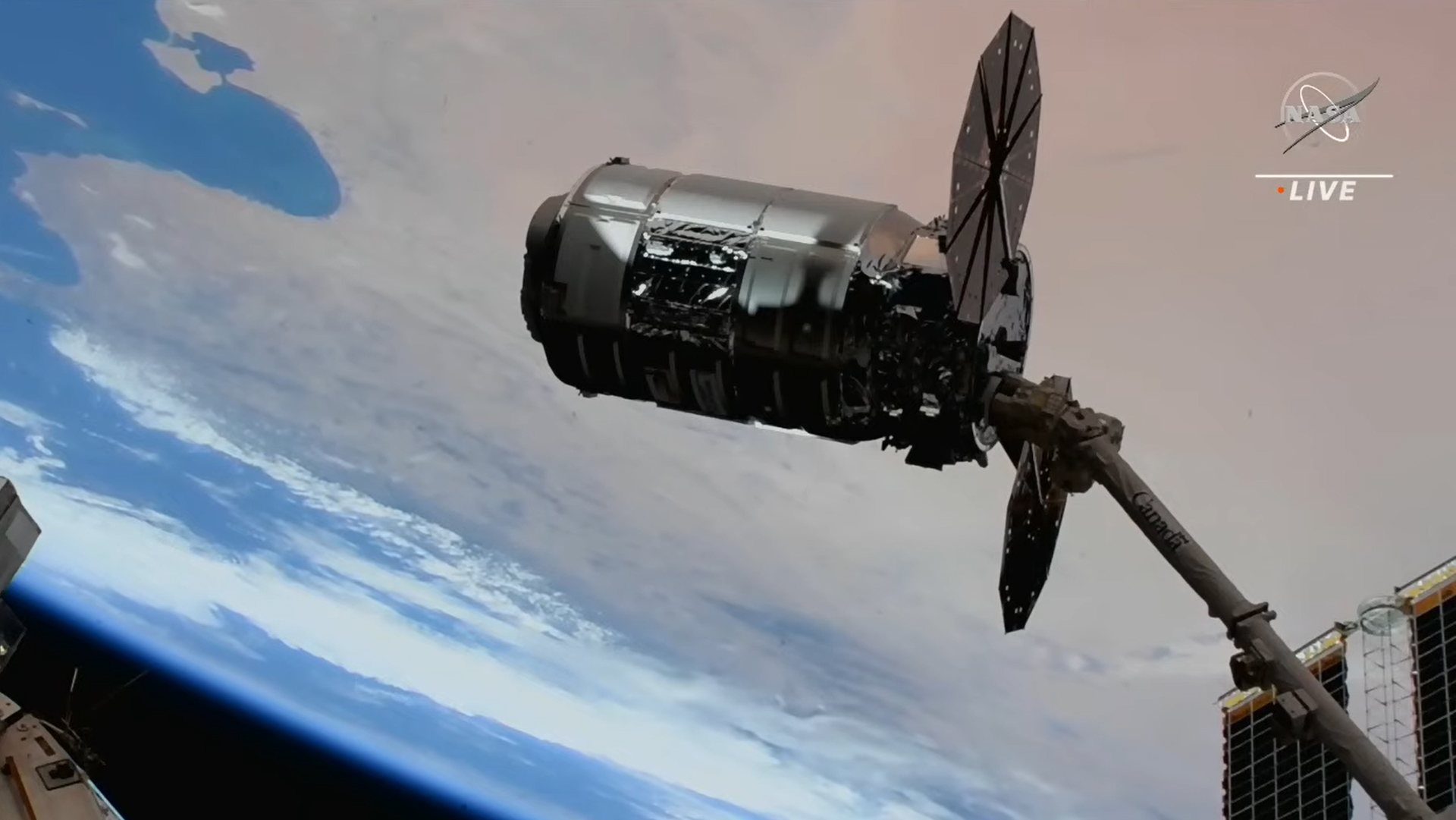SpaceX will launch a private cargo spacecraft to the International Space Station this week, and you can watch the action live.
A Falcon 9 rocket is scheduled to launch Northrop Grumman's latest robotic Cygnus freighter Tuesday (Jan. 30) at 12:07 p.m. EST (1707 GMT) from Cape Canaveral Space Force Station in Florida.
You can watch the liftoff live here at Space.com, courtesy of NASA, or directly via the space agency. Coverage will begin around 11:50 a.m. EST (1650 GMT).
Related: Facts about Cygnus, Northrop Grumman's cargo ship

Northrop Grumman named this Cygnus vehicle after Patty Hilliard Robertson, a NASA astronaut who died in a private plane crash in 2001. She was selected to the astronaut corps in 1998 and was supposed to fly to the International Space Station (ISS) in 2002.
The freighter is packed with more than 8,200 pounds (3,720 kilograms) of supplies and scientific hardware. Among the research gear is a cartilage-growing experiment that could help address joint damage and disease here on Earth and a European Space Agency project that will test the 3D printing of metals in microgravity.
You can learn more about this cargo mission — called NG-20, because it's the 20th that Northrop Grumman will fly to the ISS for NASA — via NASA's overview.
If all goes according to plan, the Cygnus will arrive at the orbiting lab around 4:20 a.m. EST (0920 GMT) on Thursday (Feb. 1). You can watch its rendezvous and docking activities live here at Space.com, courtesy of NASA.
The freighter will spend about six months docked to the ISS, then head back down for a fiery destruction in Earth's atmosphere. One experiment aboard Cygnus, called the Kentucky Re-entry Probe Experiment-2, will gather data during this death dive, taking "measurements to demonstrate a thermal protection system for spacecraft and their contents during re-entry in Earth's atmosphere, which can be difficult to replicate in ground simulations," NASA officials wrote in their NG-20 mission overview.
Cygnus is one of three robotic cargo craft that currently service the ISS, along with SpaceX's Dragon capsule and Russia's Progress vehicle. Progress, like Cygnus, is an expendable spacecraft, but Dragon is reusable, surviving the trip through Earth's atmosphere and splashing down softly under parachutes in the ocean.







